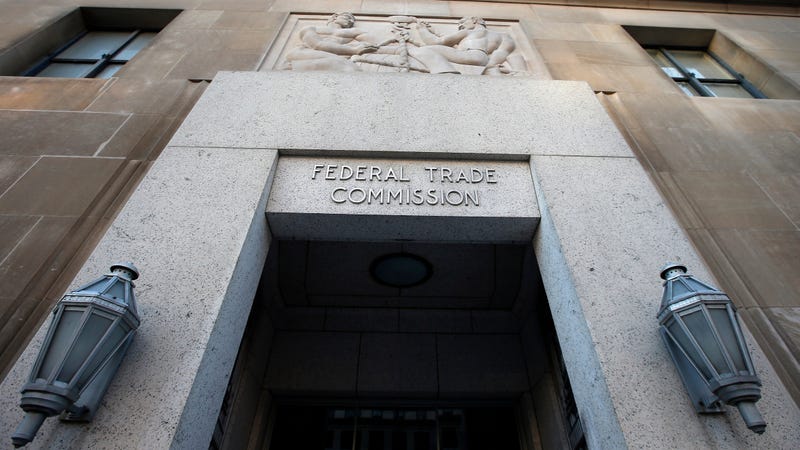 Photo: AP
Photo: AP
At this point when a new person joins the Trump administration as a regulator, the question isn’t if they are a corporate shill, it’s how big of one are they? In the case of Andrew Smith, the new head of the Bureau of Consumer Protection at the Federal Trade Commission, he is truly a shill’s shill.
According to his financial disclosure forms—obtained via Freedom of Information Act by nonprofit consumer advocacy organization Public Citizen and published by The Intercept—Smith has taken money from just about every major player in every industry that he will be tasked with overseeing. Surely that won’t affect his judgment at all…right?
Here’s what Remington A. Gregg, Public Citizen’s counsel for civil justice and consumer rights, had to say about Smith:
The bureau that Andrew Smith leads plays a pivotal role in protecting consumers. Yet he will be placed on the sidelines for many of its most consequential investigations and decisions because he has represented so many of these companies. Consumers deserve a consumer protection advocate in this position, not a hired gun for corporate sharks. Even in instances where Smith isn’t recused from participating in decisions that pertain to former clients, his many perceived conflicts of interest do not instill confidence that he is first and foremost looking out for consumers’ best interests.
The whiffs of Smith’s corporate cronyism have been there from the start, as he worked for a law firm that represented the likes of Equifax, Facebook, and Uber. But over the pages of his financial disclosure form, his relationships with 54 different clients while working as a lawyer for the Washington, DC-based Covington & Burling paint a perfect picture of the exact wrong person to be in charge of protecting American consumers.
Last year, Smith took home $1,612,500 last year while working at Covington & Burling. During that time, he received compensation for legal services from just about every major financial institution in the US. JPMorgan Chase, Capital One, Bank of America, Goldman Sachs, and American Express all cut Smith a check.
Smith also represented Wells Fargo, a company that has had nothing but legal troubles for the last few years: creating millions of unauthorized bank and credit card accounts for customers, illegally repossessing the cars of service members, discriminating against black and Latino homebuyers, scamming people with unnecessary car insurance. You know, your standard bank stuff.
The rest of Smith’s disclosure form plays out basically the same way: pick an industry, and Smith has represented the biggest offender imaginable.
Payday lenders? Present. Smith represented the Online Lenders Alliance, a lobbying organization that represents a number of payday lenders that are more than happy to suck cash out of the pockets of the people who need it most. The Federal Reserve Bank of Cleveland conducted a study last year that found people who use online loan services often end up in worse debt than other consumers. That didn’t seem to be much of an issue for Smith, who previously served as part of the legal team the defended AMG Services, a predatory payday lender that was hit with a $1.3 billion settlement for deceptive and exploitive practices it used to squeeze more money out of its cash-strapped borrowers.
How about credit bureaus? Yep. The Intercept pointed out he represented the Consumer Data Industry Association, a trade organization that represents credit reporting companies. He even testified before the US Senate on behalf of Equifax last year, where he argued that current regulations are often too burdensome for companies to comply with—fresh off the Equifax breach that exposed the sensitive data of more than half of America’s adult population, no less.
Did he represent pawn shops? Of course he did. Smith represented Cash America International, a nationwide chain of pawn shops and cash advance stores that has the distinction of being the first company ever hit with a fine from the Consumer Financial Protection Bureau.
Did he have clients in the pharmaceutical industry? Oh, you know it. Smith represented both the Pharmaceutical Research and Manufacturers of America and Cardinal Health, a top pharmaceutical distributor that currently faces more than 350 lawsuits for its role in aiding the trafficking of opioid pills.
Prior to being sworn into his position at the FTC, Smith promised to recuse himself from several dozen cases that involved companies he formerly represented, according to The New York Times. With his full financial disclosure form available, it’s clear that if Smith complies with conflict-of-interest standards, he’ll be spending a lot of time on the sideline while the agency goes after his former clients.
[The Intercept, Public Citizen]